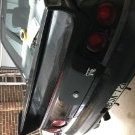How Reliable Is R33 Gtst?
Announcements
-
Similar Content
-
Latest Posts
-
Hopefully someone reads this tonight.. reying to find out how far in we need to hammer the manual spigot in? All the way in to the end.. or flush with the front? Or inside my few mm?
-
Thanks Duncan , they are the akebono calipers , for discs I might just look at getting the same size but possibly slotted units.
-
Thanks mate , I'll let my exhaust guys know to see if that addresses the issue.
-
Certainly seen bigger digs lol, Thanks for the heads up. Appreciate it
-









Recommended Posts
Create an account or sign in to comment
You need to be a member in order to leave a comment
Create an account
Sign up for a new account in our community. It's easy!
Register a new accountSign in
Already have an account? Sign in here.
Sign In Now